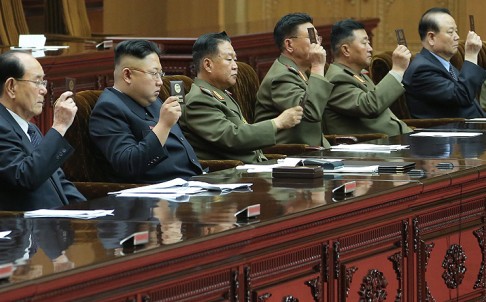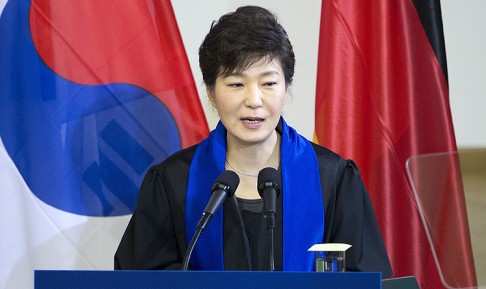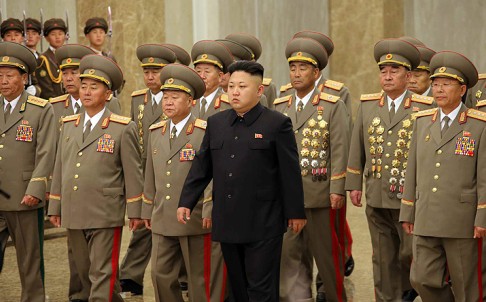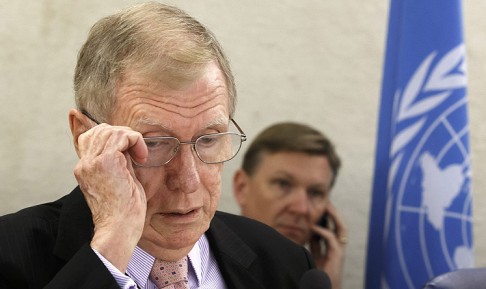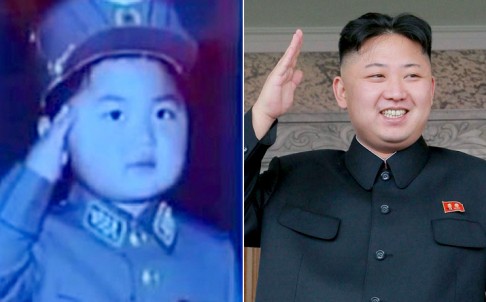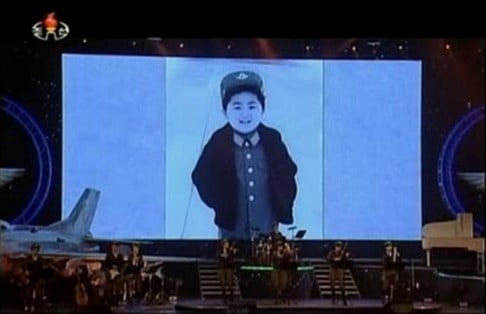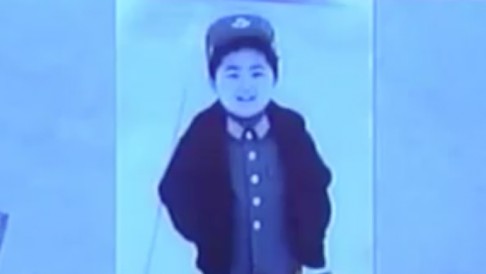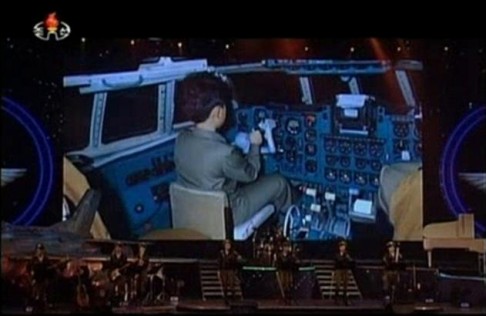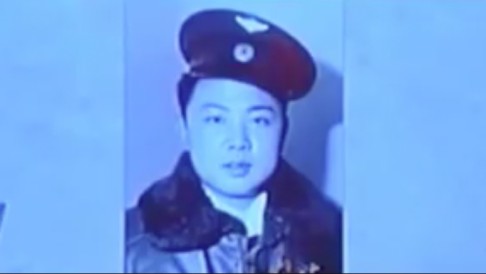- Joined
- Jul 15, 2013
- Messages
- 153
- Points
- 0
Kim Jong-un ‘re-elected’ as North Korea’s leader
Rubber stamp parliament reaffirms Kim as First Chairman of the powerful National Defence Commission in a show of support for the 31-year-old leader.
PUBLISHED : Wednesday, 09 April, 2014, 3:54pm
UPDATED : Wednesday, 09 April, 2014, 3:54pm
Agence France-Presse in Seoul
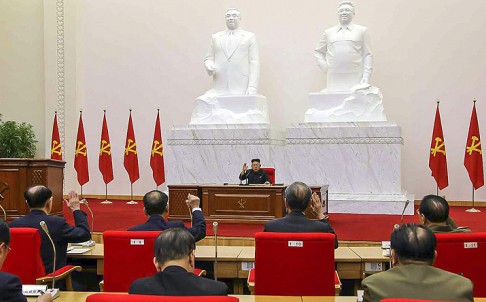
Kim Jong-un (centre) presides over a meeting of the Political Bureau in Pyongyang on Tuesday. Photo: EPA
Kim Jong-un was on Wednesday “re-elected” as North Korea’s leader, state media said, as parliament met in a session closely watched for power shifts in the secretive regime following the shock execution of his once-powerful uncle.
The new parliament is expected to endorse personnel changes that observers say are likely to affect a number of officials linked to his “traitor” uncle Jang Song-thaek, once the North’s unofficial number two and Kim’s political mentor.
Kim was reaffirmed as First Chairman of the powerful National Defence Commission (NDC) by the new parliament, in a show of “absolute support and trust of all service personnel and people in him”, the Korean Central News Agency (KCNA) said.
The rubber-stamp assembly – the first under the leadership of Kim who took over from his father in December 2011 – gathered after North Koreans last month cast ballots in pre-determined elections where all candidates stood unopposed.
Upon his re-election, “all the deputies and participants in the session broke into stormy cheers of ‘hurrah!’, extending the highest glory and warmest congratulations to him,” KCNA said.
Kim also serves as first secretary of the ruling Workers’ Party of Korea and supreme commander of the Korean People’s Army, but his re-election as head of the top military body confers upon him ultimate power in the heavily militarised state.
On Tuesday, top party leaders met to decide on personnel changes at the head of the regime in the aftermath of the execution of Jang, who was purged last December after being accused of crimes including treason.
The session of the parliament, the Supreme People’s Assembly, is being closely watched for glimpses into power shifts within the reclusive regime.
Kim led Tuesday’s meeting of the ruling party’s high-level Political Bureau, which discussed “reinforcing” the party’s organisation in order to boost its “leadership role and function”, KCNA said, indicating personnel changes.

Kim Jong-un smiles with commanding officers of the combined units of the Korean People's Army, of which he is supreme commander. Photo: Reuters
Wednesday’s opening parliamentary session comes after “elections” last month in which single candidates – approved by the political elite – stood uncontested. Kim notably managed a perfect turnout in his own constituency.
Analysts say the changes may affect the powerful NDC chaired by Kim, in which Jang served as vice-chairman.
Several other elderly military leaders – such as defence minister Jang Jong-nam and Ri Yong-gil, chief of the military’s general staff – are seen as likely to take seats at the NDC, replacing Jang and his suspected associate, former police chief Ri Myong-su.
North Korea’s leaders are also believed to have discussed plans for the future of the party’s key administration department, which was headed by Jang.
Through the department, Jang controlled not only the Stalinist state’s police and justice system but also went beyond his remit, intervening in economic and military affairs, Professor Yang Moo-jin of the University of North Korean Studies said.
The parliament meets only once or twice a year, mostly for day-long sessions to rubber-stamp budgets or other decisions made by the ruling Korean Workers Party.
The last session in April last year adopted a special order formalising North Korea’s position as a nuclear-armed state – a status that both South Korea and the United States have vowed not to recognise.
Wednesday’s session comes amid high tensions between the two Koreas following a series of threats by Pyongyang in protest against ongoing Seoul-Washington military drills.
The North since last month held a string of rocket and short-range missile tests followed by its first mid-range missile launch since 2009, held on March 26.
The two Koreas traded fire across the tense Yellow Sea border last week after the North dropped some 100 shells across the border during a live-ammunition drill, prompting Seoul to fire back.
Kim last week warned of a “very grave situation” in a meeting with his top army leaders.
South Korean President Park Geun-hye called on Monday for tighter vigilance against the North after Pyongyang warned on March 30 of the prospect of a “new form of nuclear test”.



